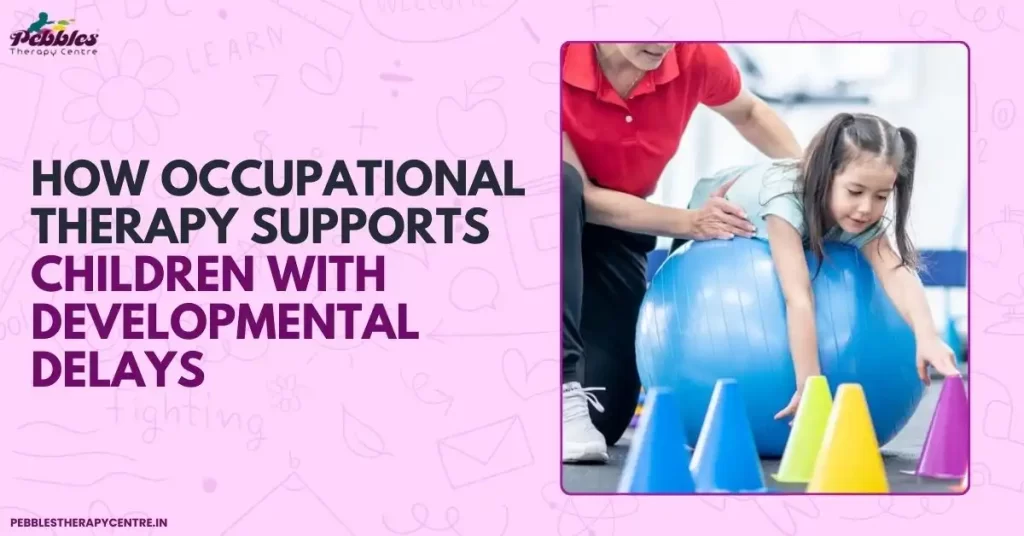How Occupational Therapy Supports Children with Developmental Delays
What are Developmental Delays?
Developmental delays involve a child’s failure to attain or master certain given developmental milestones within the expected age range. These include basic skills such as walking, talking, and even socializing. For instance, if the child doesn’t want to walk by 18 months or is not speaking simple words at the age of two, then he might be suffering from developmental delay.
It is usually manifested in children with developmental delays in gross motor, fine motor, cognitive, and socio-emotional development. Dealing with developmental delay through occupational therapy is important in offering certain strategies that can assist such children to catch up with their peers.
Delays can be specific, as in speech and language, or affect many areas, which is known as global developmental delay. It is especially essential to know about these delays early in order that an early intervention may have a better outcome in these children. Occupational therapy for global developmental delay aims at enhancing the skills in different domains so that children with a delayed trajectory could achieve independence with confidence.
Signs & Potential Causes of Developmental Delays
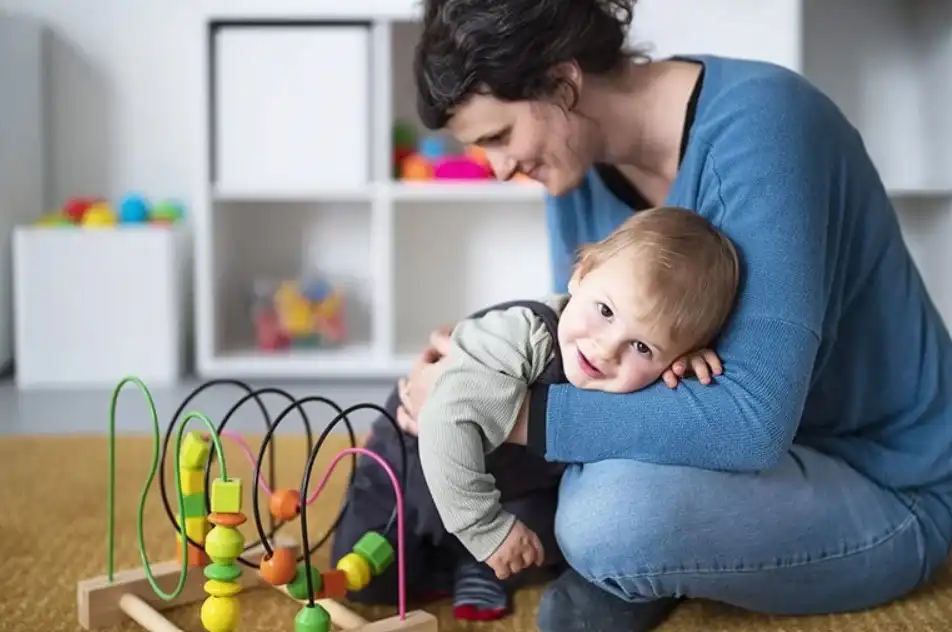
The timely intervention is the outcome of early identification of developmental delays. The typical signs of developmental delays in infants and children include the following:
- Gross motor skill delays – The inability to sit, crawl, walk, or balance at a certain age.
- Fine motor skill delays – Problems with stacking blocks, drawing, and even using utensils.
- Speech and language delays – Not talking by a particular age, problems understanding instructions, or responding late.
- Social interaction challenges – Not maintaining eye contact, not developing relationships, not responding to names.
The causes of delayed developmental milestones are varied and can include:
- Cerebral Palsy – A child may have a disorder related to movement and coordination, thus delayed development milestones.
- Genetic conditions – For example, Down syndrome is one of the conditions that hamper speech, motor skills, and cognitive development.
- Environmental factor – A premature birth, prenatal exposure to harmful substances, or lack of stimulation.
- Autism and developmental delay – It is often associated with difficulty in communication and socializing skills.
- Cerebral palsy and developmental delay – Co-occurrence affecting motor and cognitive competence.
Awareness regarding these signs and possible causes can enable early diagnosis and intervention. This holds the key to a significant difference in the long-term outcome of the child.
How to Find Out if a Child Has a Developmental Delay?
Diagnosis in a child for developmental delay can be tricky and requires careful evaluation of the child. The first step is that the parents observe whether their child is achieving the expected developmental milestones. Then, if necessary, they are to consult with the pediatrician to receive preliminary screening on the child. If necessary, most physicians would refer the child for screening and further observations by occupational therapists.
The in-depth evaluation sometimes involves developmental screenings to check the ability of a child in gross motor, fine motor, communication, and social interaction. For instance, a child with a delay in the area of gross motor may have difficulties in walking—namely, not being balanced properly when walking—and this is an indication to refer the child for further detailed assessment by an occupational therapist.
Early detection is very important. A lot can be done toward enabling such a child to overcome such delays through early intervention for developmental delay. Specialist assessments—such as those done for OT therapy for autism or occupational therapy for global developmental delay—always come in handy in the inclusive structure of a plan of treatment. The plan may include the various regular session therapies, customised activities, and ongoing progress tracking.
How Can Occupational Therapy Help Children with Developmental Delays
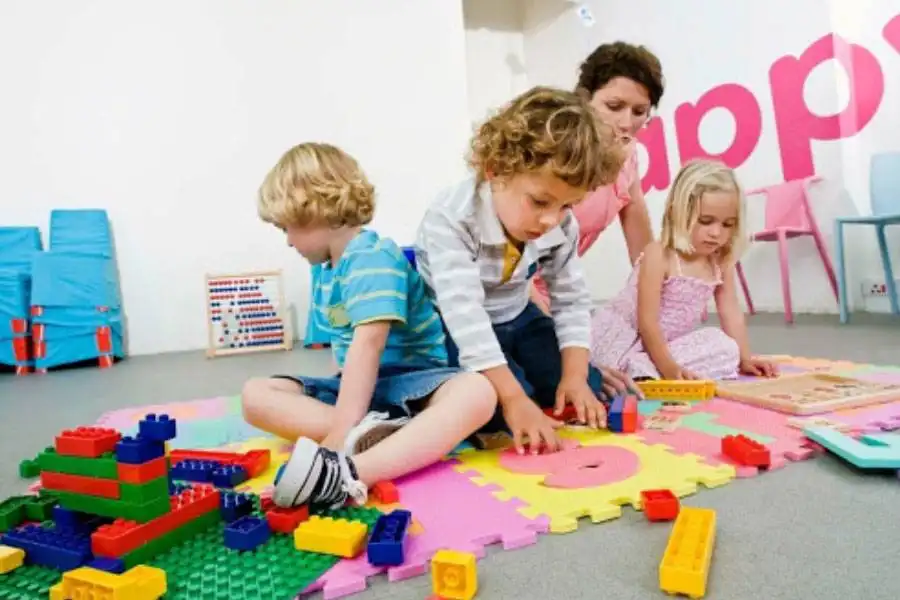
Occupational therapy is very vital in the management of children with developmental delays, including those who have gone through developmental delay in infants. It bridges the gap existing between such children and the attainment of significant developmental milestones. The focused skills include fine motor, gross motor skills, sensory processes, and social-emotional development. The children acquire skills through directed activities that help them develop independence in executing routines and thus help them build self-confidence.
The occupational therapy for children with developmental delays incorporates individual interventions. Therapists encourage growth with the use of play-based techniques, sensory integration, and the inclusion of the family within the therapy process. The earlier that therapy is started with children with developmental delays, then the better results that can be expected. By developing speech and language, cognitive, and motor skills, occupational therapy supports children in doing well within their daily environments and in being the best that they can be.
Key Areas of Occupational Therapy for Children with Developmental Delays
Occupational therapy offers essential assistance to children with developmental delays to engage in full- and everyday activity. Various therapists target special development areas in order to advance the skills of the child with an aim to becoming independent. Below are the primary areas where occupational therapy creates a huge difference.
1. Fine Motor Skills
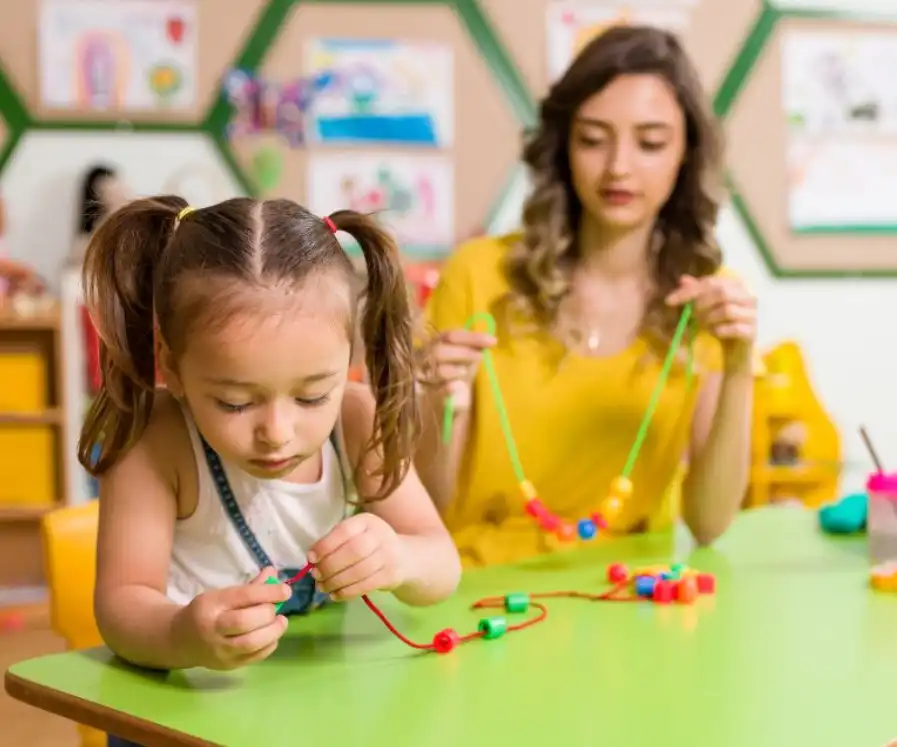
Occupational therapy enhances fine motor skills—grasping, drawing, using utensils, and many others. Thereby, the children are able to take certain independent measures, such as getting well dressed and feeding themselves. Children from a delayed milestone in childhood may be a major beneficiary of occupational therapy activities that enhance hand-eye skills to be more at par with their friends, hence being independent. Generalized Occupational therapy activities for developmental delay are, therefore, necessary and beneficial for children with delayed milestones.
2. Gross Motor Skills
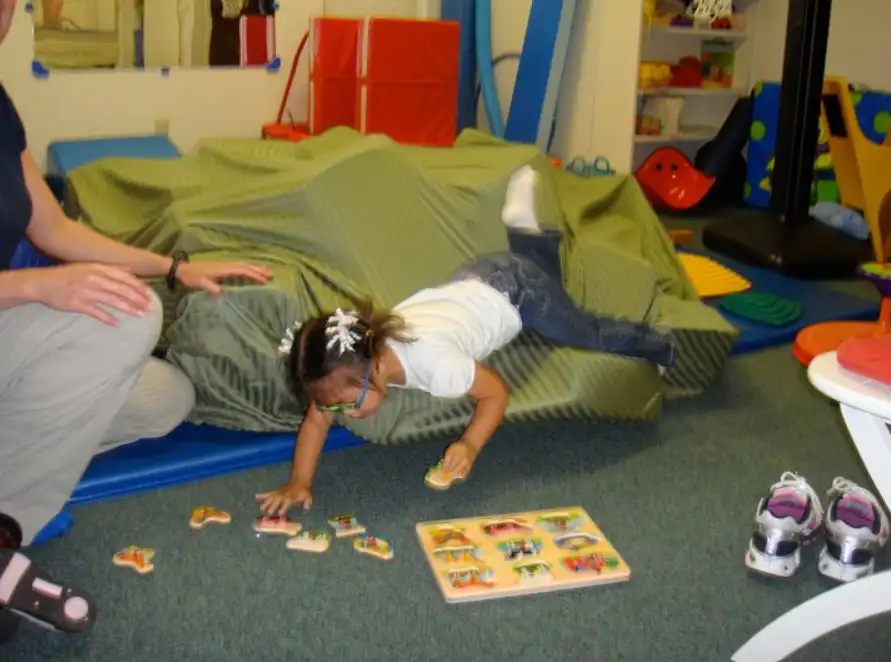
Developing gross motor skills is another critical aspect that is to be cared about. Occupational therapy addresses exercises to enhance strength, balance, and coordination that are pivoting to activities like walking, running, and climbing. Several selective therapies work for developing physical needs and meeting children with general gross motor skill delays.
3. Sensory Processing
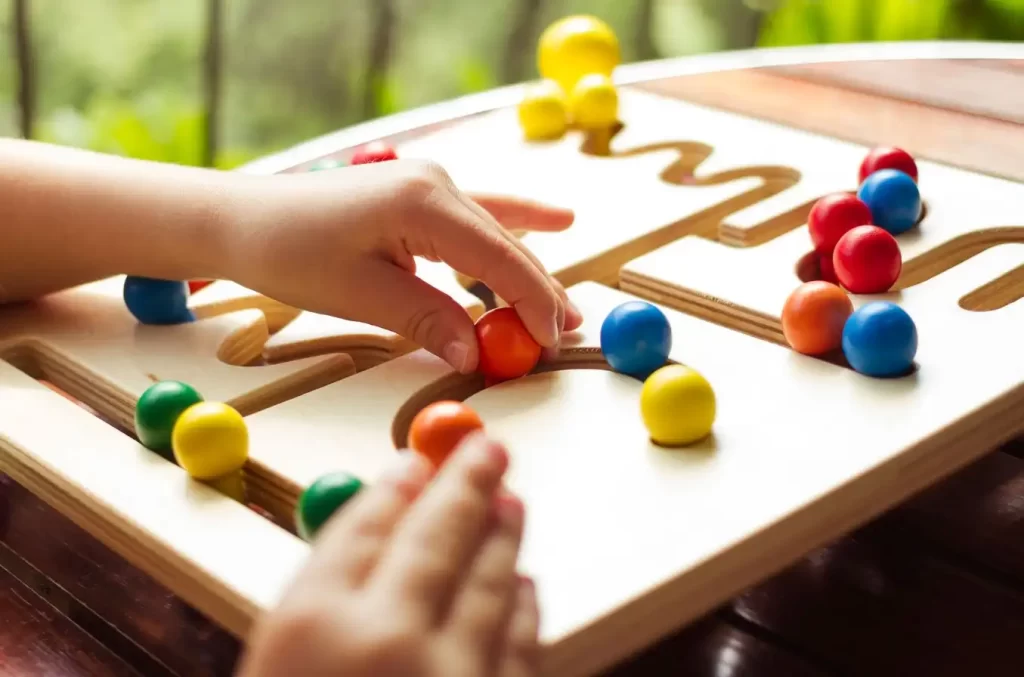
Most of the children with sensory processing issues do not react properly to the sensory stimuli. Occupational therapy deals with sensory-consistent approaches for processing information that helps the child process the sensory information more effectively. This is most beneficial to children with autism and developmental delay as they can be able to manage their environment effectively.
4. Cognitive Skills
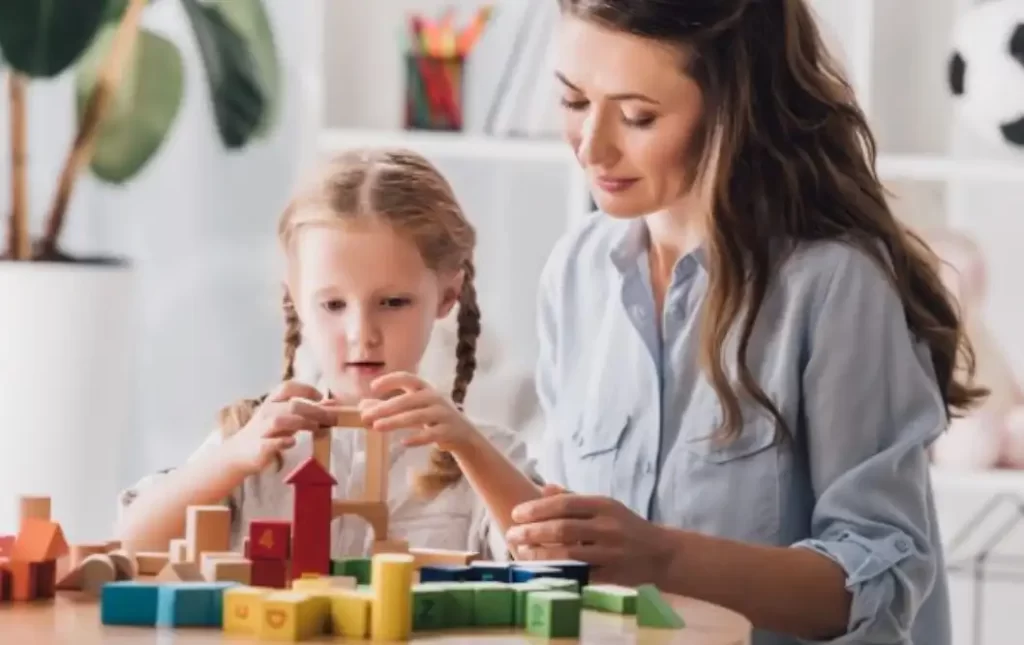
Most of the children with sensory processing issues do not react properly to the sensory stimuli. Occupational therapy deals with sensory-consistent approaches for processing information that helps the child process the sensory information more effectively. This is most beneficial to children with autism and developmental delay as they can be able to manage their environment effectively.
5. Social and Emotional Development
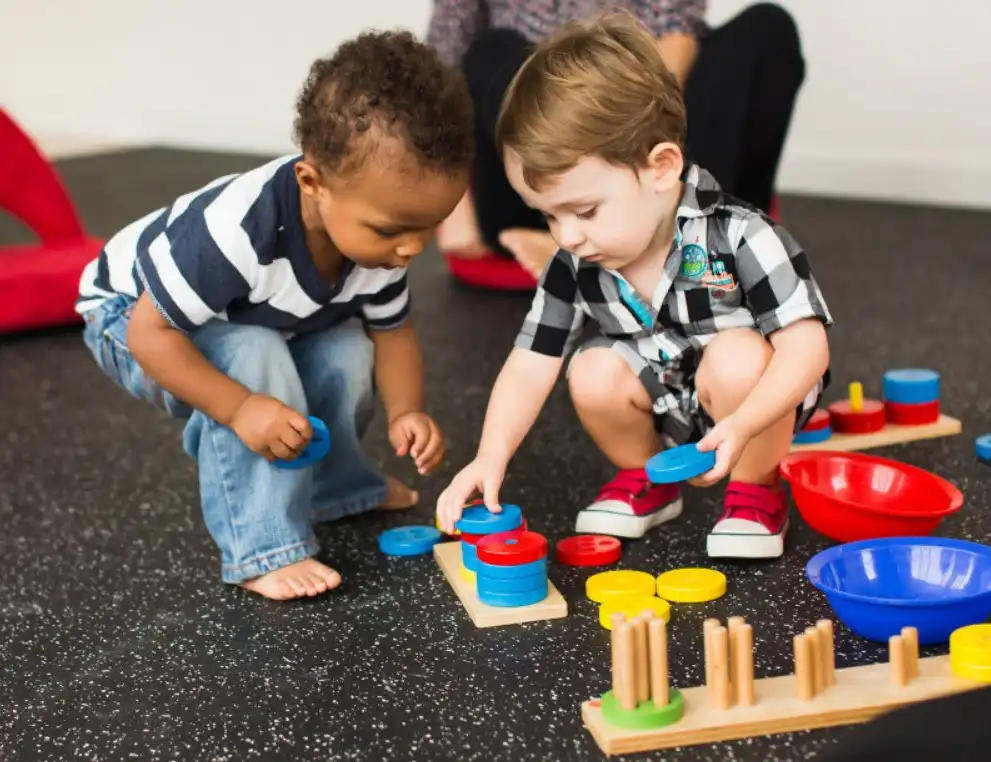
It is, therefore, essential to support the interaction of children with others and ensure that they can manage their social and emotional development. Occupational therapy includes social skills training to develop play-based exercises and improve emotional regulation. Such programs help achieve development in relationships and the understanding of social cues and expression in children with developmental delays.
Occupational therapy deals with those areas to ensure that children with developmental delays develop fully with day-to-day lives, issue-free and able to reach whatever level of progress they were intended for.
Factors That Contribute to Developmental Delays in Children
There are so many reasons why children will experience some kind of developmental delays, so parents or guardians need to know the different factors. Cerebral palsy developmental delay is one of the most standard contributors. It affects motor and cognitive development in a child in this case. Such kinds of conditions lead to difficulties in movements or coordination and may be a result of brain damage before or during birth.
The other factors are:
- Genetic disorders: Down syndrome, retarded speech, motor abilities, and cognitive development
- Environmental factors: Premature birth, prenatal exposure to harmful materials, and poor nutrition.
- Autism: This is mostly associated with developmental delays in social, communications, and motor skills.
- Medical conditions: Chronic diseases, infections, or other illnesses which hamper a child’s development.
Early childhood developmental delay can be caused due to all these factors combined, due to which the parents should seek professional evaluation in case any signs of delay are noted. Developmental delays can be understood from their causes. Therefore, effective intervention is guided and the overall development of the child is supported.
Occupational Therapy Strategies for Developmental Delay
The role of occupational therapy in developmental delay has a lot to offer in the case of the child with developmental delays. It aims at enhancing the overall development of a child, ranging from motor skills to mental abilities. Some effective strategies include:
- Task-oriented activities: Engaging the child in real-life situations, such as dressing, eating, or playing, in order to obtain actual life skills.
- Sensory integration techniques: Assist the child to integrate and process sensory inputs more appropriately. This is specifically helpful for children with autism and developmental delay.
- Play-based therapy: Utilizes play as a means to build motor, cognitive, and social skills in a natural environment and in a fashion that is enjoyable to the child.
- Family education: Involves the parents or caregivers in the therapeutic process to transition or generalize the skills achieved to the home environment and assure follow-through for constant progress.
Occupational therapist sensory integration techniques also play a very important role in ensuring children with sensory processing problems are assisted. Such techniques allow the child to respond more appropriately to sensory inputs around them, hence enhancing their survival in various daily environments. Occupational therapy works in conjunction with sensory integration to bring about balanced sensory experiences in the child, as in the case of autism and developmental delay.
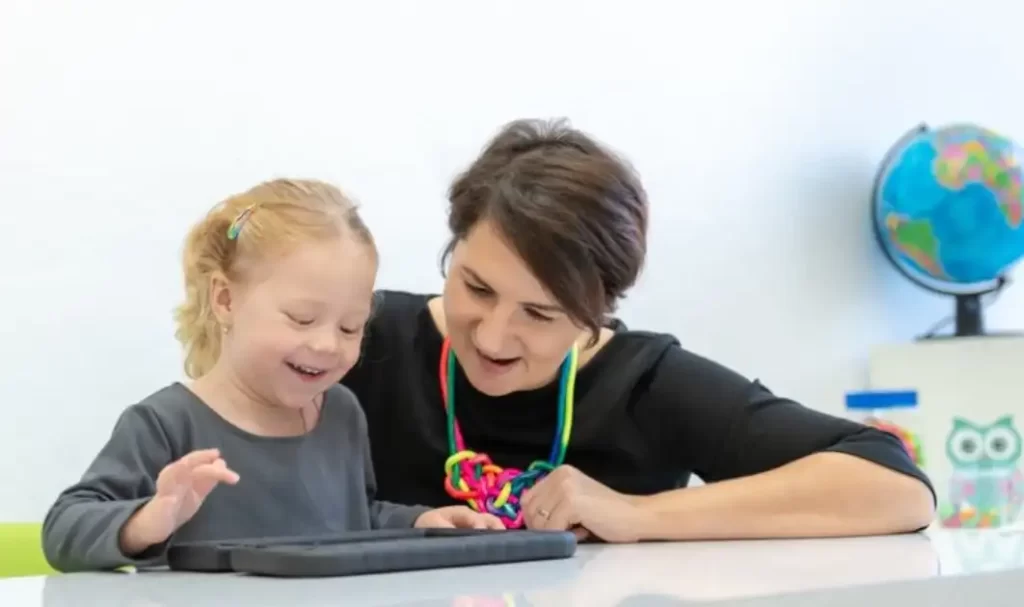
Occupational Therapy Treatments For Developmental Delays In Children
Occupational therapy treatments for developmental delays in children are so tailor-made according to each need of a child. This can be in the form of gross motor delay, fine motor skills, and sensory integration therapies. For instance, a child with a delay in gross motor skills would perform activities that enhance muscle strength, balance, and coordination.
Treatment generally involves sensory integration, training of social skills, and activities to improve communication for children with autism and developmental delay. Occupational therapy for autism addresses the issues specific to children with autism and functions on developing life skills.
Occupational therapy may becom coupled with specialized therapy aimed at enhancing motor skills in children with cerebral palsy developmental delay. Occupational therapy for global developmental delay provides holistic support to a child’s development in almost all or all areas.
ABA speech and occupational therapy merges speech therapy with behavioral strategies to focus on difficulties in communication and behavior. It brings in occupational therapy to target motor and sensory issues.
FAQs
Children can start occupational therapy as early as during infancy. This is because early intervention has more positive outcomes with early commencement and support for growth in development.
Sensory integration helps the child with developmental delays find a manner of processing sensory stimuli effectively. Activities like swinging and balancing enhance attention, coordination, and regulation of emotion.
Among the long-term benefits of occupational therapy are improved motor skills, better social interaction, and more independence. If done regularly, it will help a child in reaching his optimum potential.
Yes, occupational therapy enhances socio-emotional skills by increasing communication, emotional regulation, and peer interaction through specific activities and group play.
Yes, there are occupational therapy programs that address conditions such as autism, Down syndrome, and cerebral palsy with appropriate targeted interventions.

